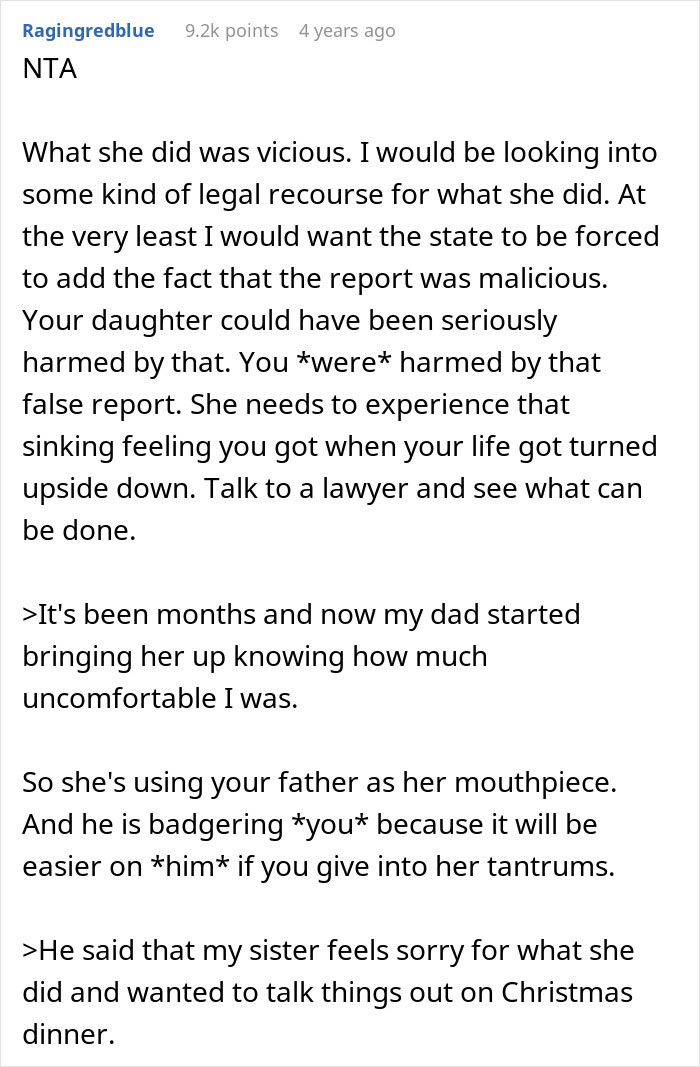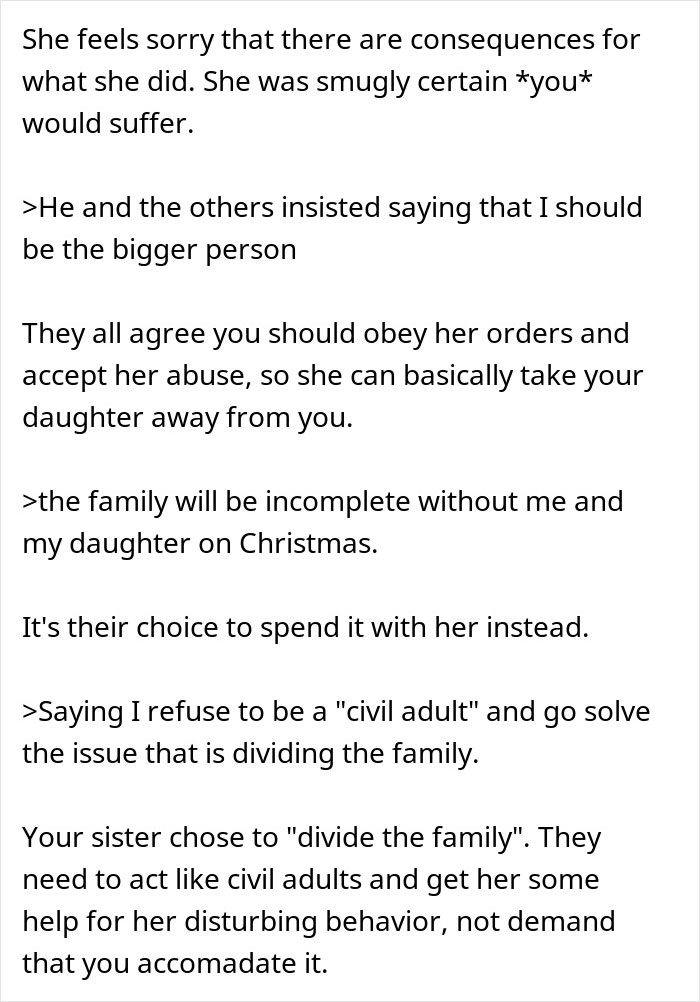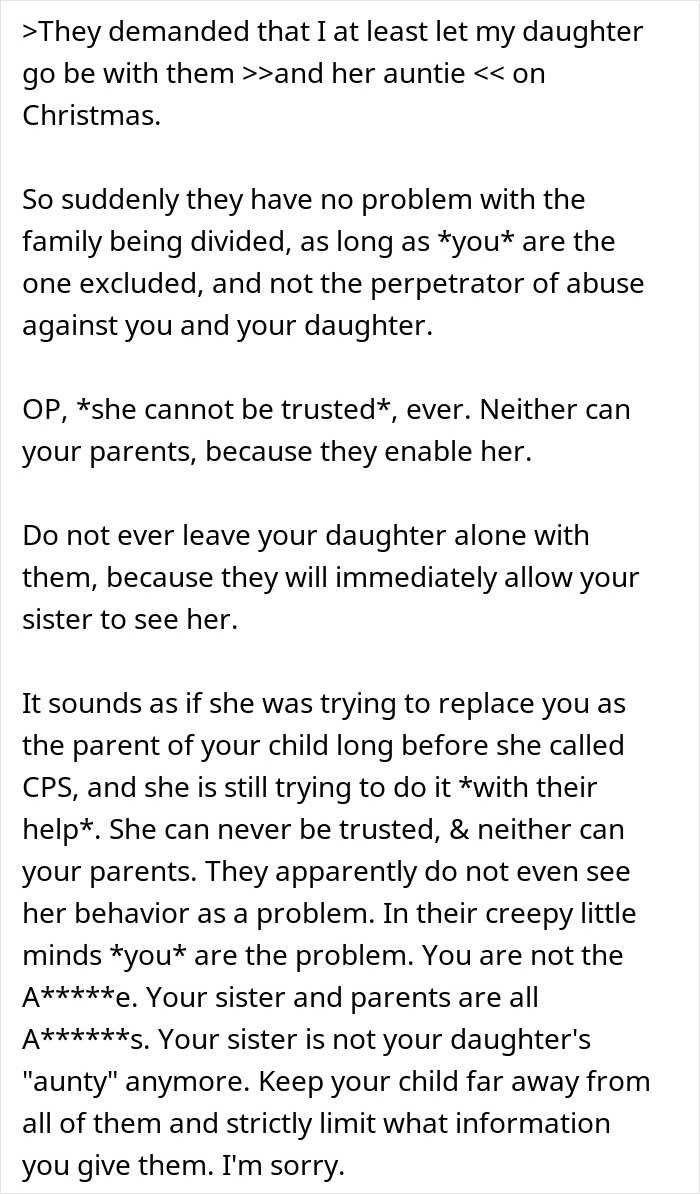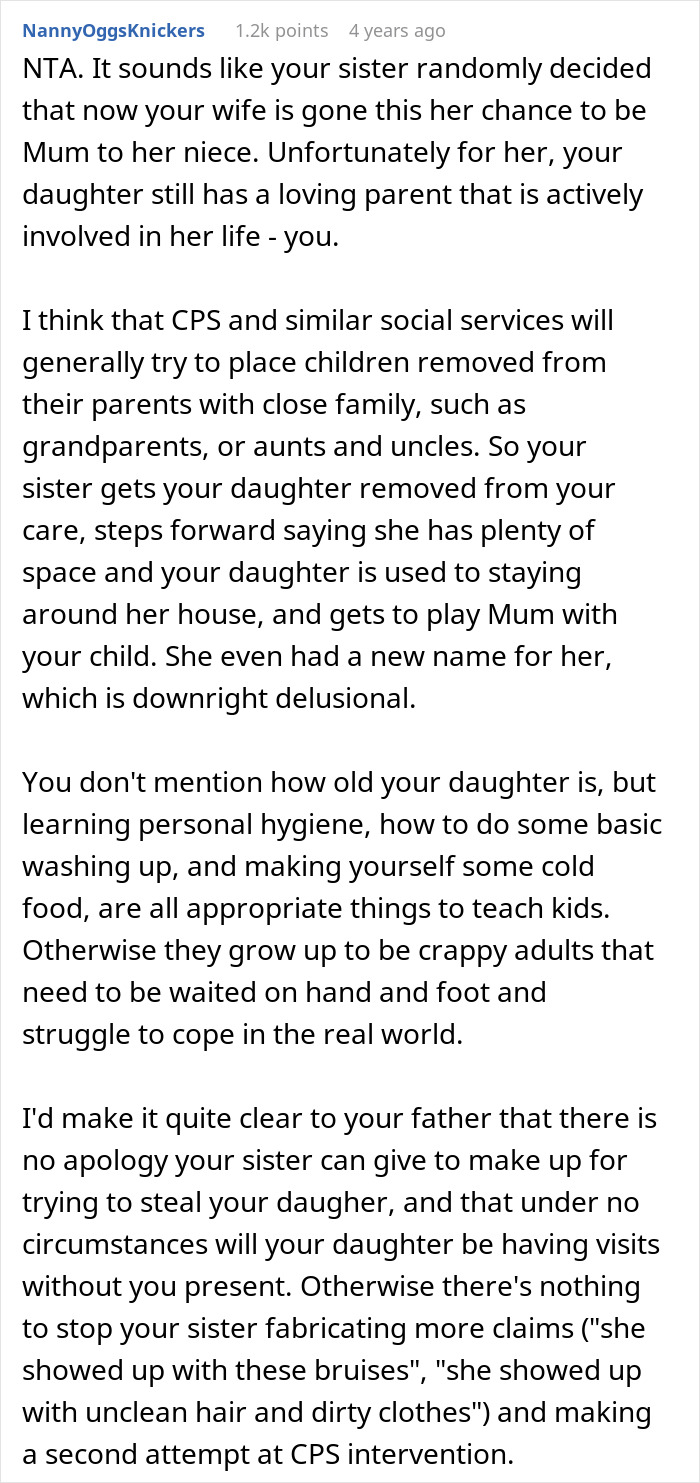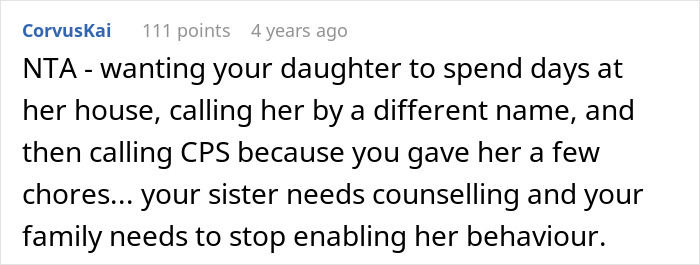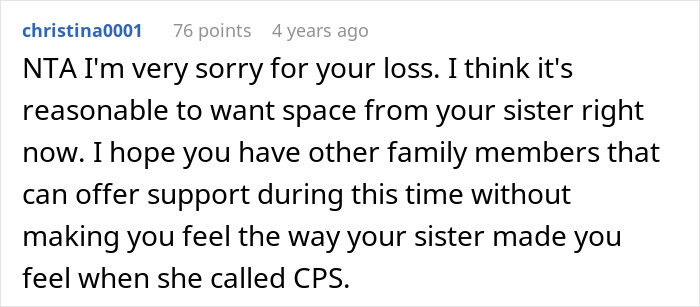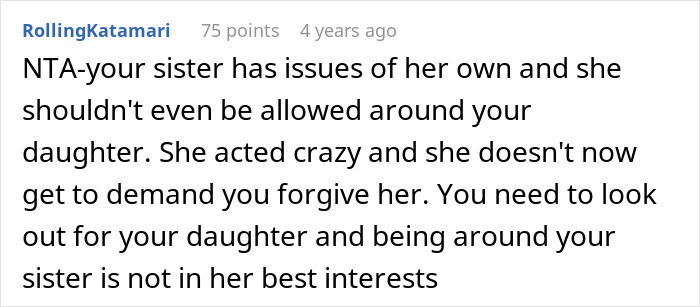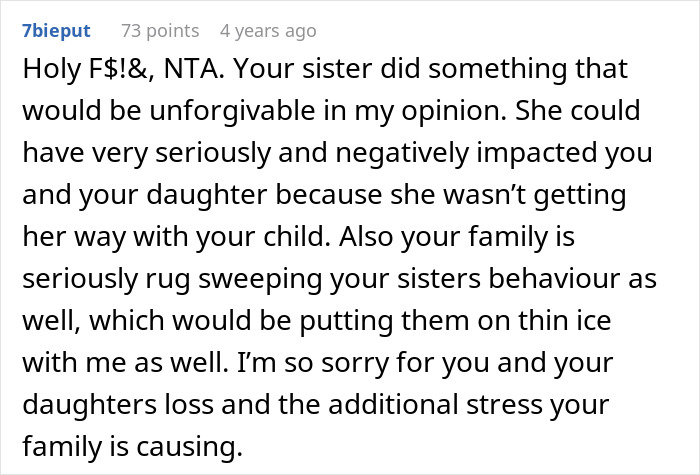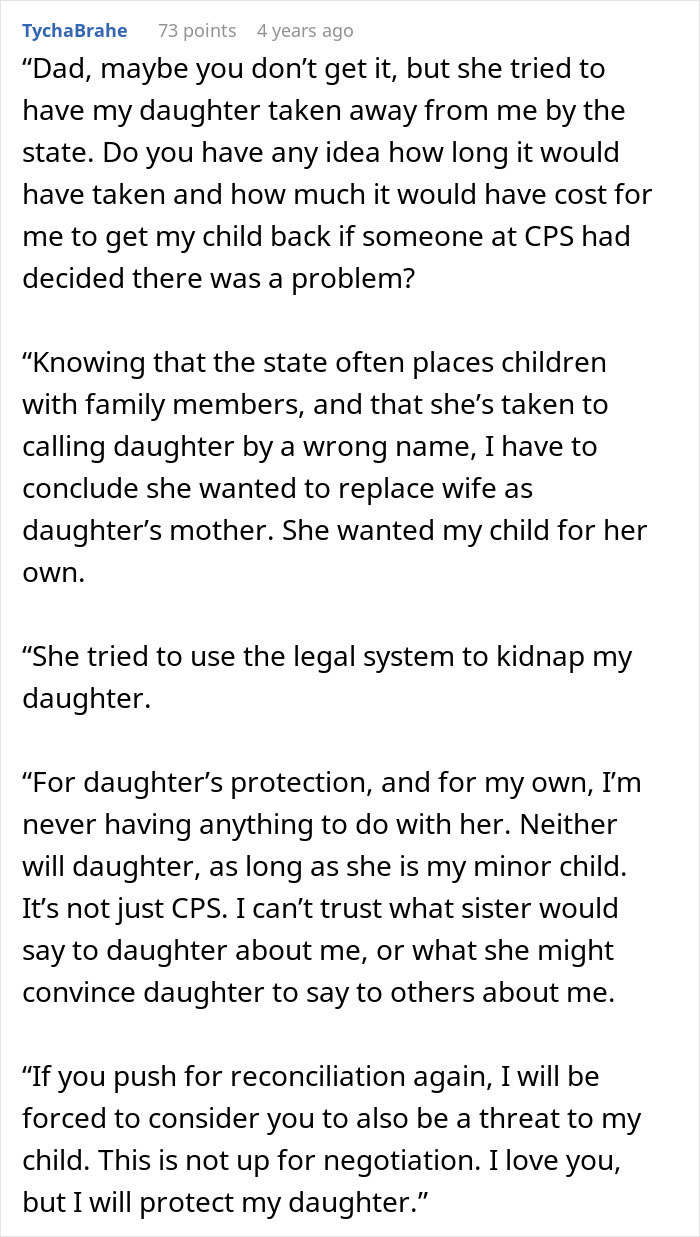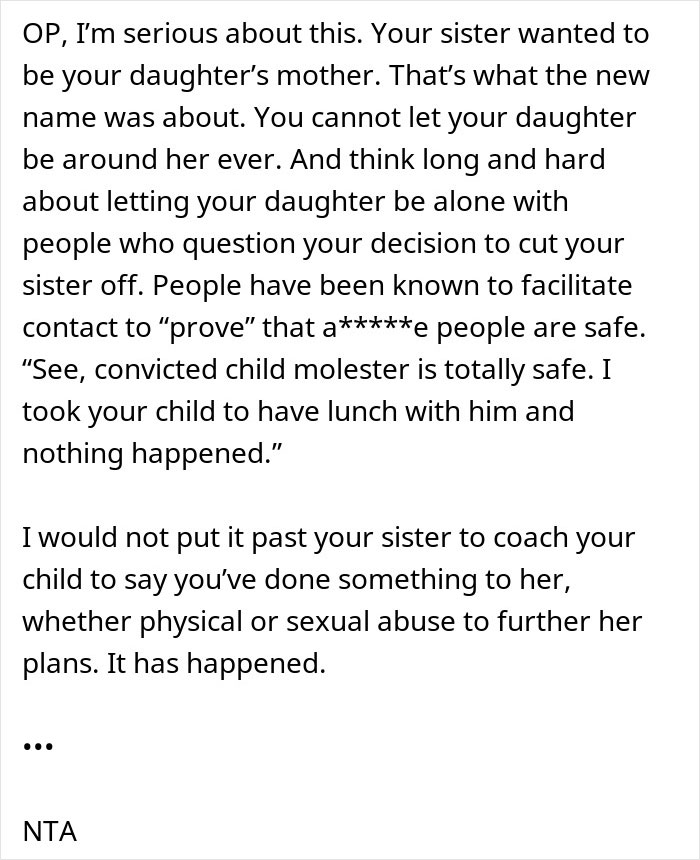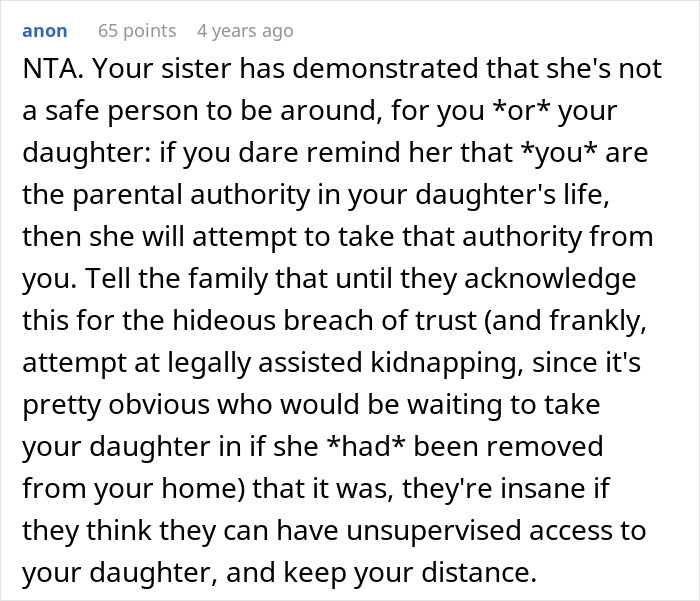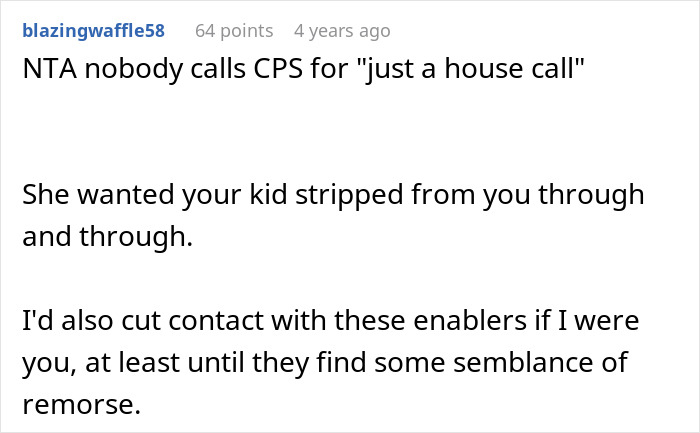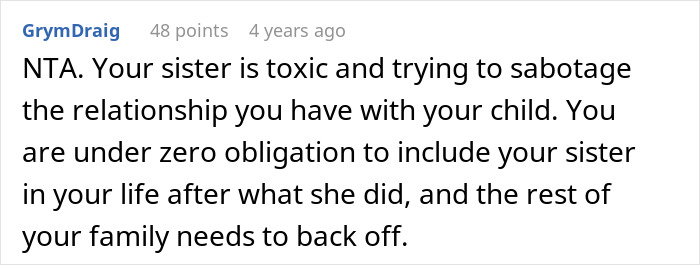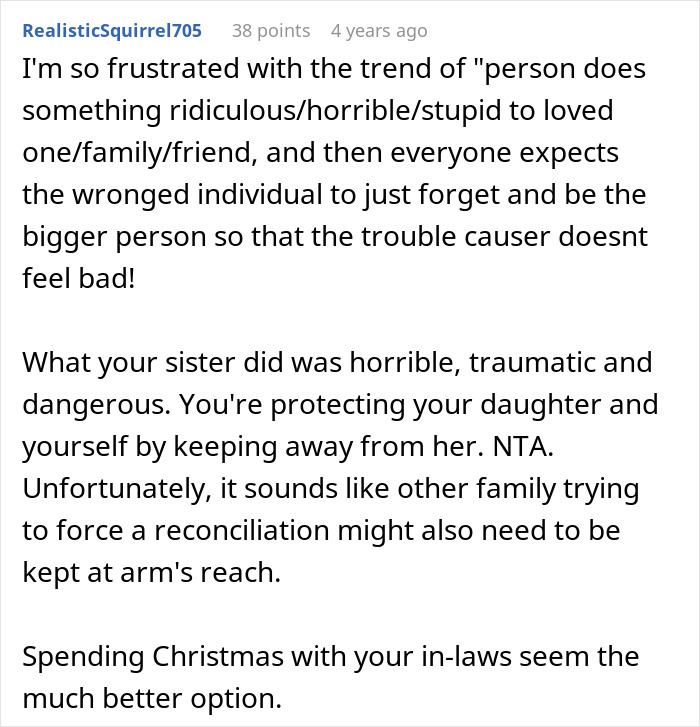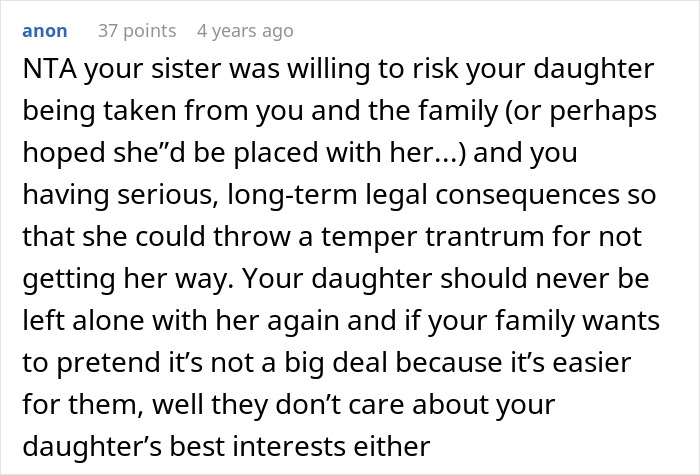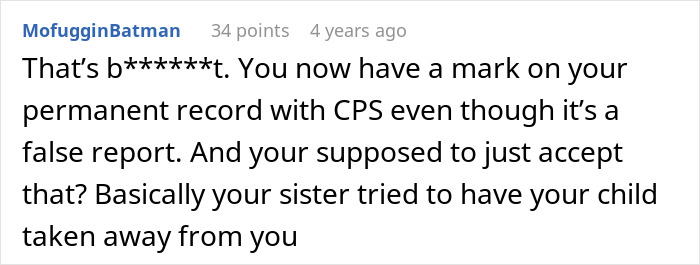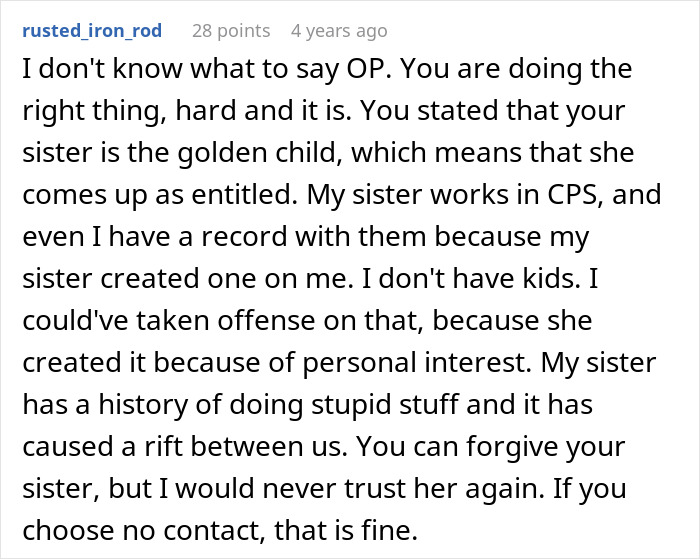Becoming a single parent is rarely something you’re prepared for. And when it happens, the biggest challenges can come from the people you least expect.
After losing his wife of ten years, this man was left to raise their daughter on his own. He tried his best, teaching her basic life skills and encouraging independence. But his sister didn’t see it that way. She claimed he was being neglectful and, in a shocking move, reported him to CPS.
Now, he’s refusing to forgive her, even as the rest of the family pressures him to make peace. Read the full story below.
The man was doing his best to raise his daughter after losing his wife
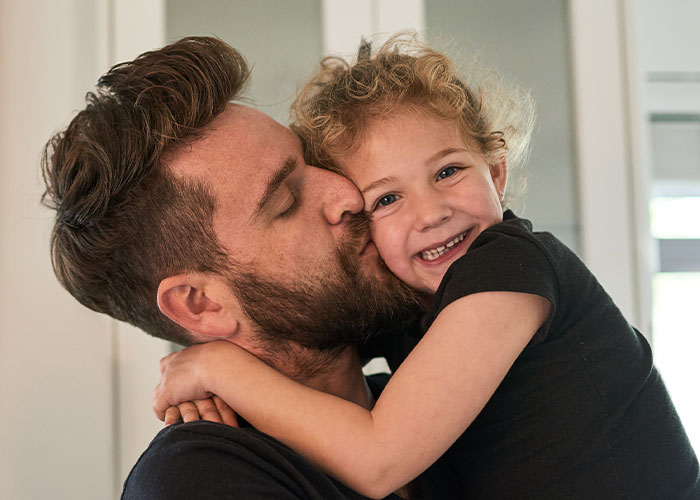
Image credits: The Yuri Arcurs Collection / freepik (not the actual photo)
Only for his own sister to report him to CPS for the way he parented
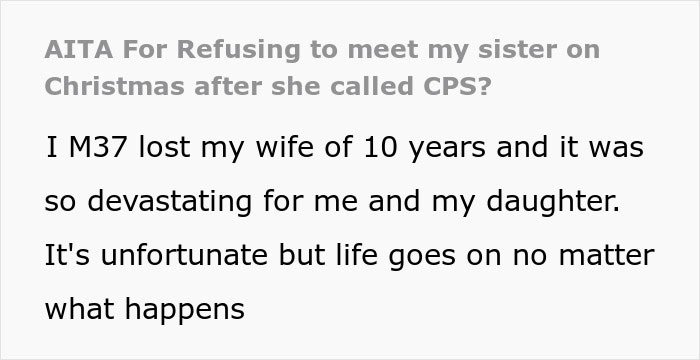
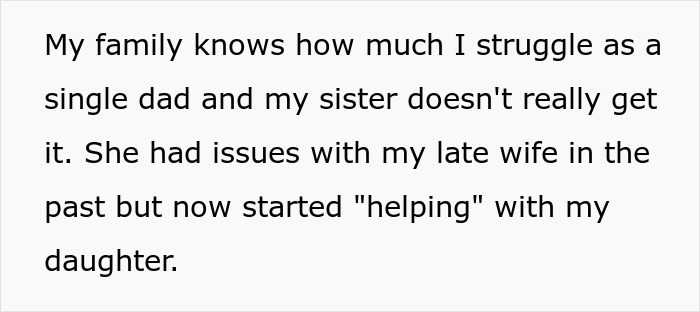
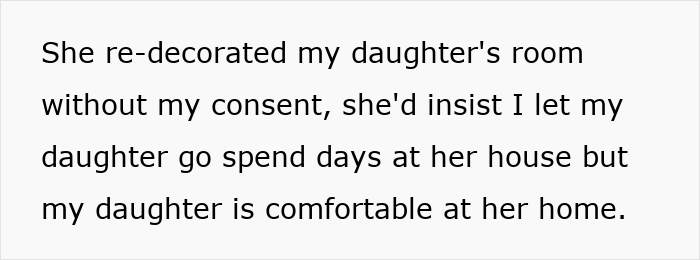
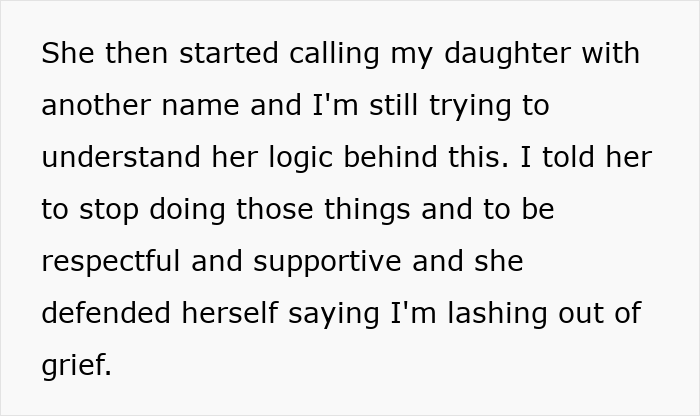

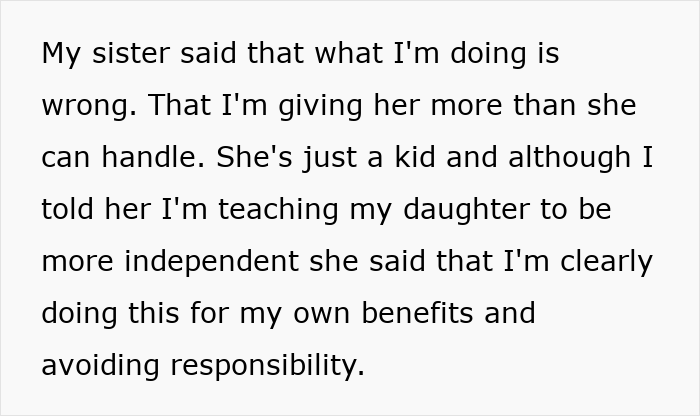
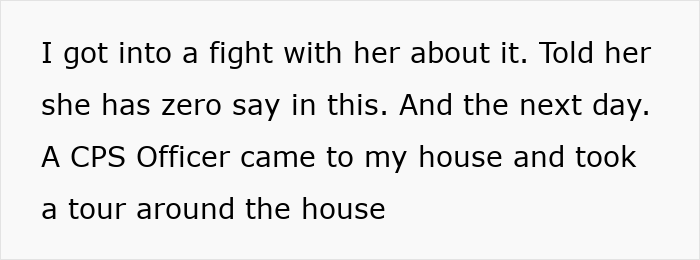
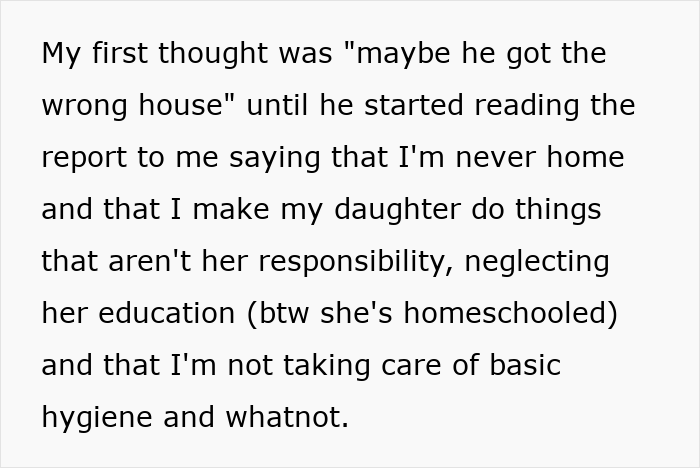
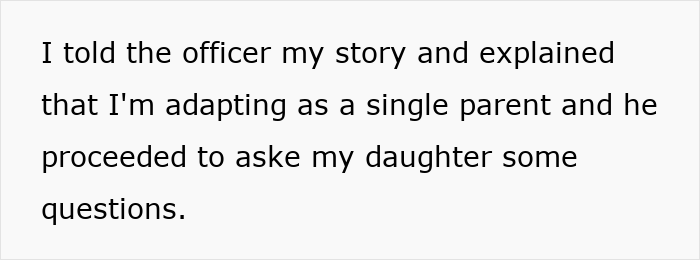
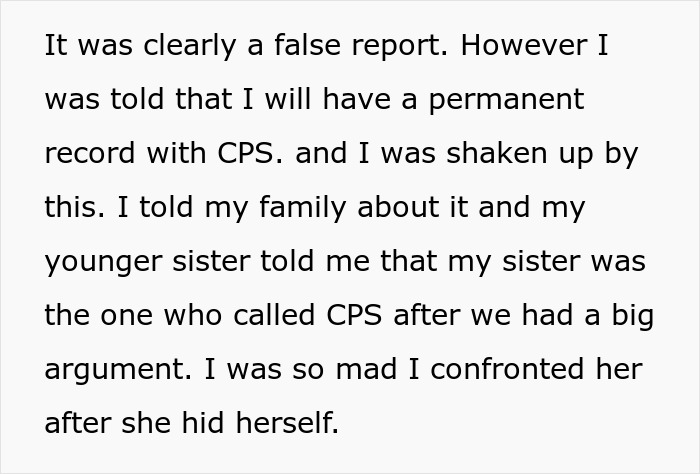
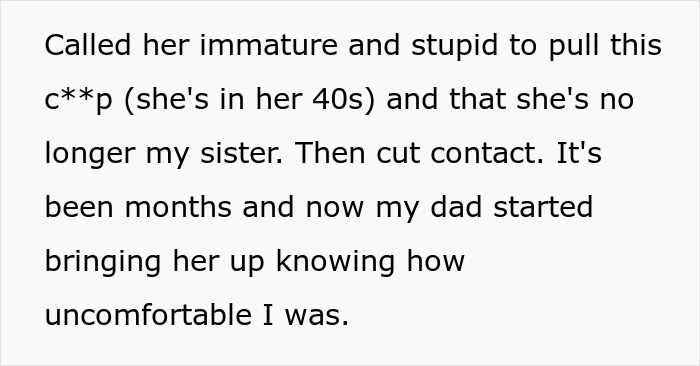

Image credits: TriangleProd / freepik (not the actual photo)
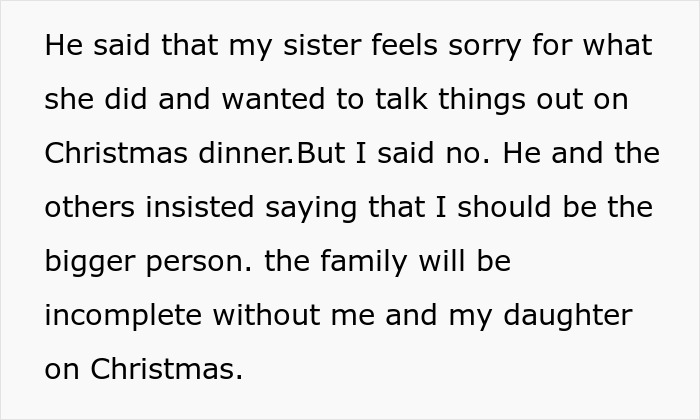
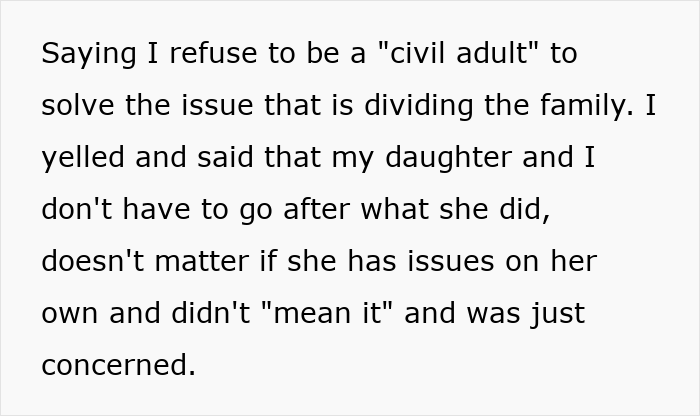


Image credits: Wall-mart928
How do you protect yourself when family crosses the line?
Having disagreements with your siblings isn’t exactly unusual.
In fact, a YouGov study found that nearly half of Americans with at least one sibling (46%) experienced rivalry growing up, though many of those tensions tend to fade with time. It’s an experience many of us know all too well.
What is unusual, however, is when a sibling goes so far as to sabotage your relationship with your child, leaving behind real emotional damage. It’s a heartbreaking reality, one that cuts deep and is hard to come back from.
It can also be incredibly draining when a family member believes they have a right to control parts of your life. Setting boundaries in these situations can be tough, not just emotionally, but socially.
There’s often pressure from other relatives to forgive, forget, and “keep the family together,” even if doing so reopens a wound you’re trying to heal.
That’s why Bored Panda reached out to experts Candice Tamara and Dr. Lauren Lawson for insight on navigating these difficult dynamics.
According to Candice Tamara, trauma and mindset coach and host of the F*ck Trauma podcast, one of the first steps is getting clear on what the boundary means to you.
“Family pressure often comes from a place of love—they think reconnection is what’s best. But it can also show up as guilt, minimizing your pain, or discomfort with conflict. The most important thing is to come back to your why: Why did you need this boundary? What does it protect in you?” she says.
Tamara adds that taking space doesn’t have to mean cutting someone off forever: “Sometimes it’s what allows real healing and even stronger relationships down the line. But that decision doesn’t have to be made right now.”
Maintaining those boundaries is easier said than done, especially when others try to undermine them. Dr. Lauren Lawson, a licensed family therapist practicing in Pennsylvania and California and founder of HOPE Counseling Center, suggests regularly revisiting the reasons behind your decision and surrounding yourself with people who respect and support it.
She also recommends preparing a few clear, firm responses you can use when pressured:
- “I understand you want us to reconcile, but this boundary is necessary for my wellbeing right now.”
- “I appreciate your concern, but I need you to respect my decision about this relationship.”
- “This isn’t a decision I made lightly, and I’m not in a position to reconsider it at this time.”
- “I know this is difficult for everyone, but please understand that I need to prioritize my child’s emotional safety.”
In emotionally charged family dynamics, people often feel the need to justify their decisions in long, detailed explanations. But you don’t owe anyone that.
“You don’t need permission to protect your peace,” Tamara emphasizes. “A powerful reminder in moments like this: ‘It’s safe for me to protect my energy, even if others don’t understand.’”
You can care about someone and still keep your distance
Setting boundaries, however, is just one variable in the journey to recover from a toxic family member. Another is learning how to close and heal the emotional wound that came with it.
“The loss of a sibling relationship—especially through betrayal or unresolved conflict—is a layered grief,” Tamara explains. “You’re not just mourning the person, but the bond, the shared past, and the future you hoped for. And sometimes the hardest part is that you can still love them—and still know that taking space is the healthiest thing for you.”
She encourages people to make room for those conflicting truths: “This hurt me. I still care. And I’m allowed to choose myself. Love and boundaries can coexist. Distance doesn’t mean you don’t care—it means you care about your safety, peace, and healing too.
Dr. Lawson agrees, noting that healing involves acknowledging all your emotions, including grief, anger, guilt, relief, and that redirecting energy into relationships that are safe and supportive can be incredibly helpful during this time.
Tamara also suggests a more personal approach: writing an unsent letter to the sibling or relative who hurt you. “[It] can be a powerful way to process what remains unspoken—what hurt, what you longed for, and what you’re now choosing to release,” she says.
And of course, don’t hesitate to work through your feelings with a therapist if needed, says Dr. Lawson. There’s nothing wrong with asking for professional support.
Even if part of you someday wants to reconnect with that family member, both experts agree that healing doesn’t have to include reconciliation. It’s completely valid to move forward without ever rebuilding the relationship.
“It simply means releasing the fantasy of who you hoped they would be—and grieving that version, too,” Tamara says. “It means accepting the relationship for what it is, not what you wished it was, and giving yourself permission to move forward on your terms.”
Dr. Lawson adds that single parents in particular are often judged more harshly, even when they’re doing their best.
“Single parents often face unique scrutiny and judgment,” she says. “Teaching children age-appropriate life skills isn’t parentification, it’s preparing them for independence and can create valuable bonding opportunities.”
“‘Forgiveness’ and ‘reconnection’ are separate processes,” Lawson reminds. “The father may eventually reach a place of forgiveness for his own peace, but that doesn’t mean he needs to reestablish a relationship that proved harmful to his family.”
The man followed up in the comments to clear up some details
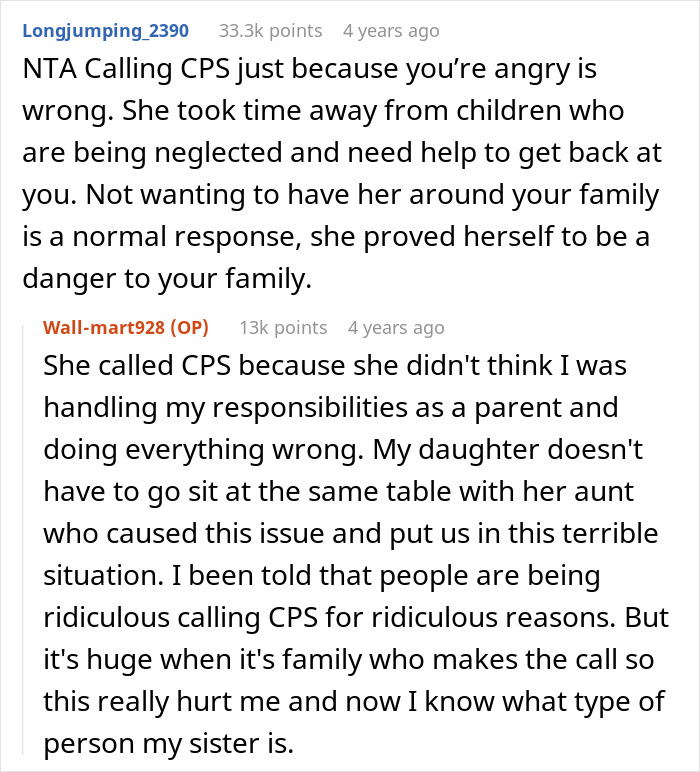
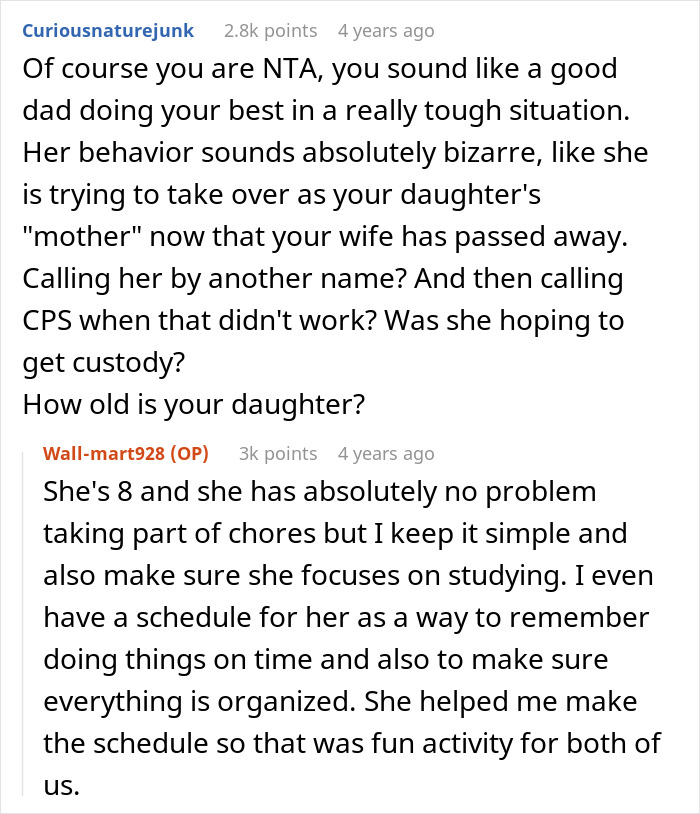
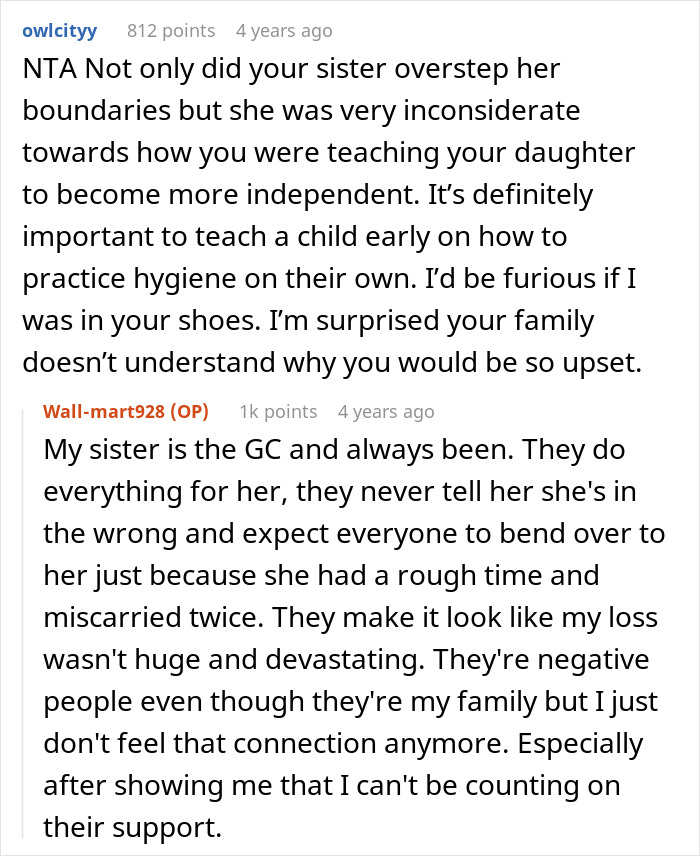
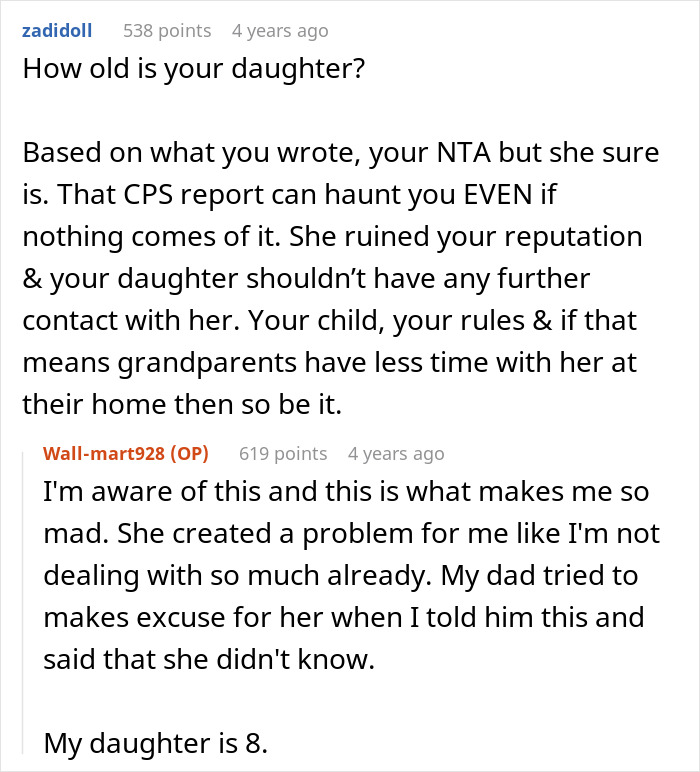
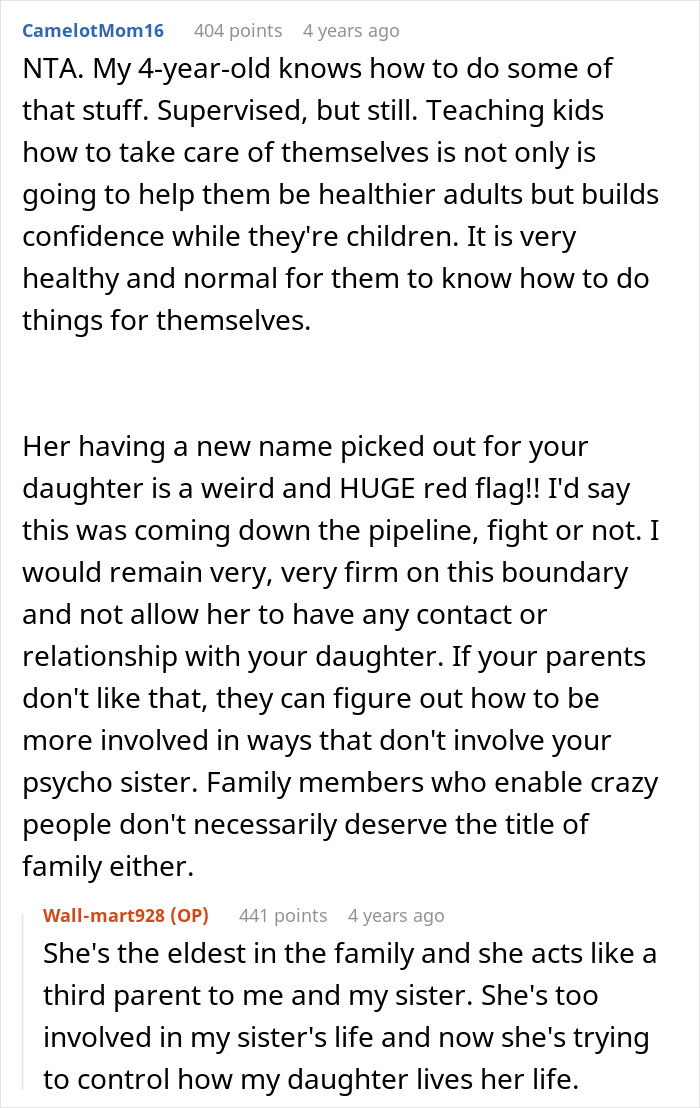
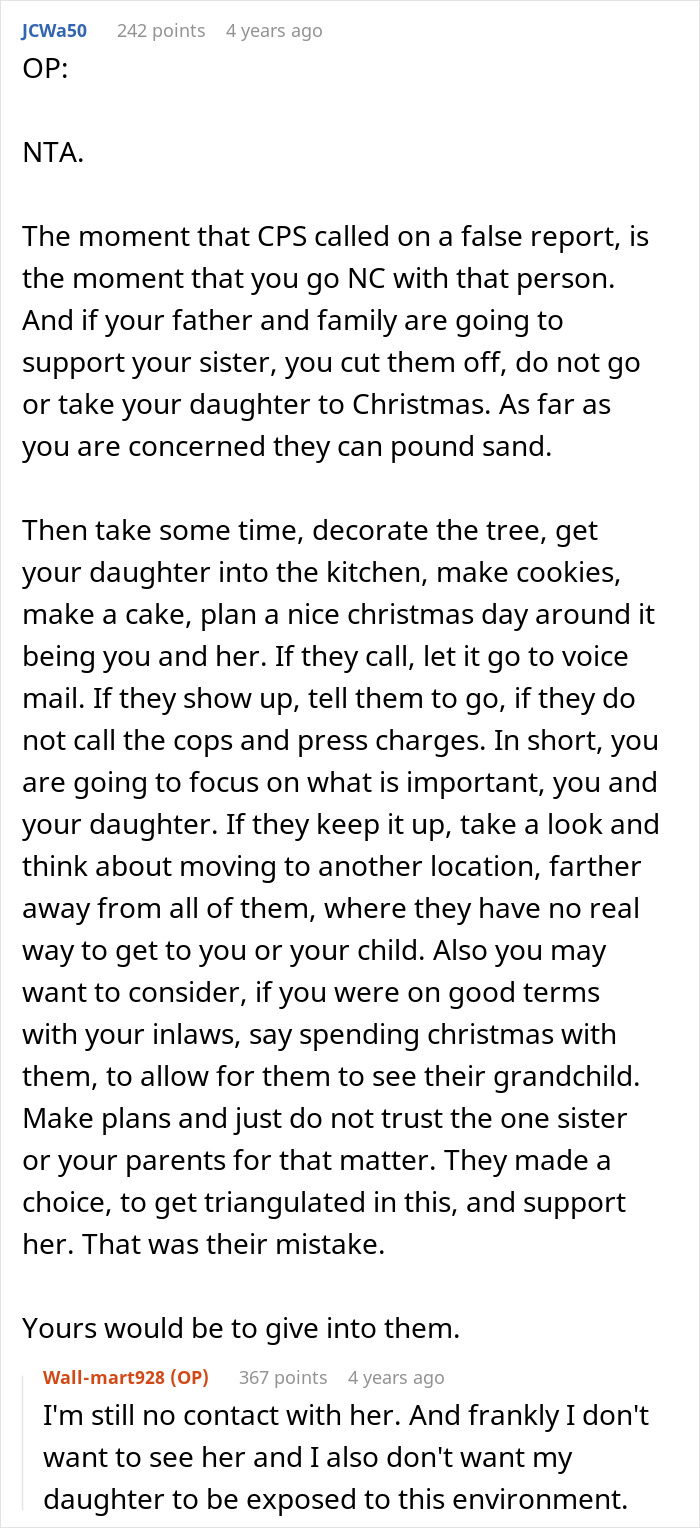
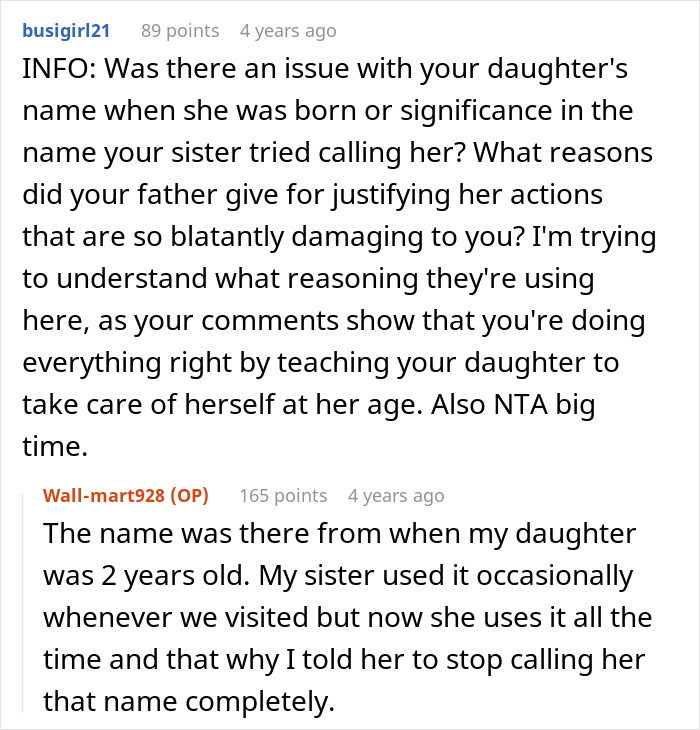
Readers agreed he had every right to respond the way he did
